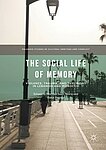Struggle over mined Territory: Historical Contingency in the Aftermath of the Moroccan Truth and Reconciliation Instance
Over the last 20 years, Moroccans have experienced the emergence of a gradual revision of the country’s post-colonial history closely tied to investigating the grave human rights violations during the so-called years of lead under the late King Hassan II. Morocco's 2004 National Equity and Reconciliation Commission has set in motion a huge apparatus of reparation projects, now under the umbrella of the Conseil National des Droits de l’Homme (CNDH).
A re-evaluation of the past was first expressed in memoirs, auto-biographies, fictional texts, films and other forms of cultural expression published in the early nineties. Most recently a shift in the occupation with the country’s post-1956 history (at-tarikh ar-rahin) can be observed. From my point of view, the academic landscape is today under review with controversies over free access to post-colonial sources and archives, the introduction of a ‘Master program of Contemporary History’, the opening of the ‘Archives du Maroc’ in June 2013, or the establishing of local museums as communal reparations. First results show a relatively easy permeability between academia and media in the Moroccan case.
The project looks at the interplay of state and non-state actors in the field of memory politics in Morocco. It examines contemporary debates over the country's post-colonial history, asking to what extent such debates reflect a “restless longing for better circumstances”, or competing efforts to control memory and forgetting of a violent past. In particular, I am interested in how this interaction has been shaped since 2004 through print media, fierce conflicts over academic and archival territory, as well as new institutional initiatives born out of Morocco’s truth commission.
